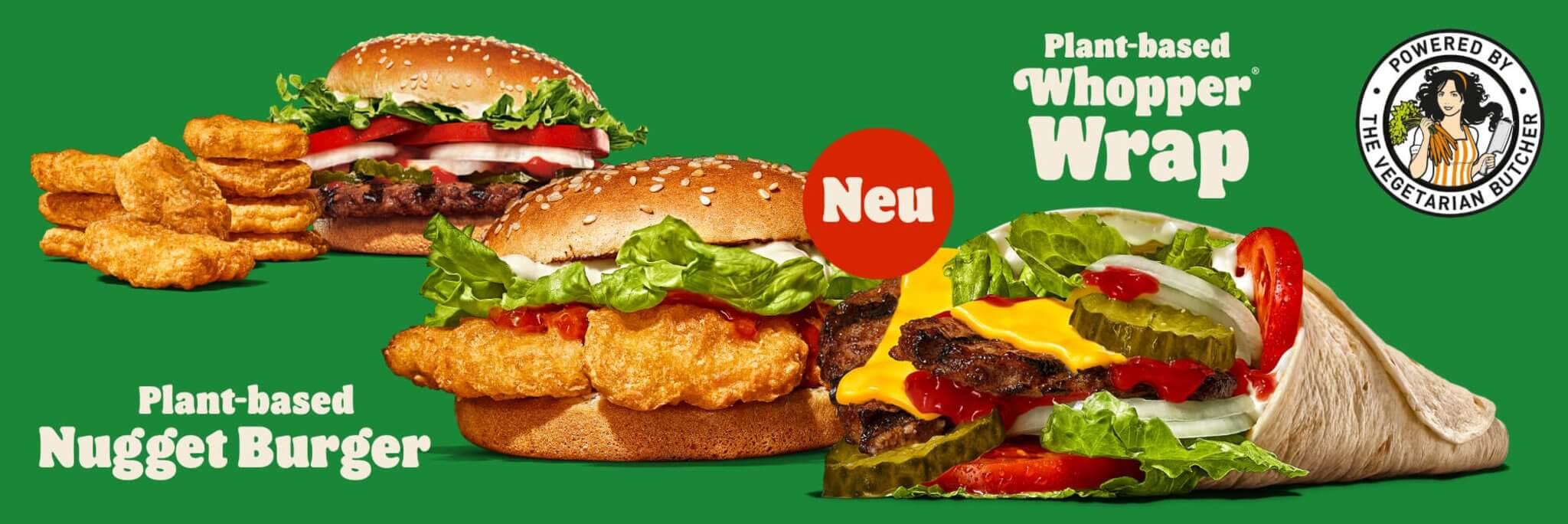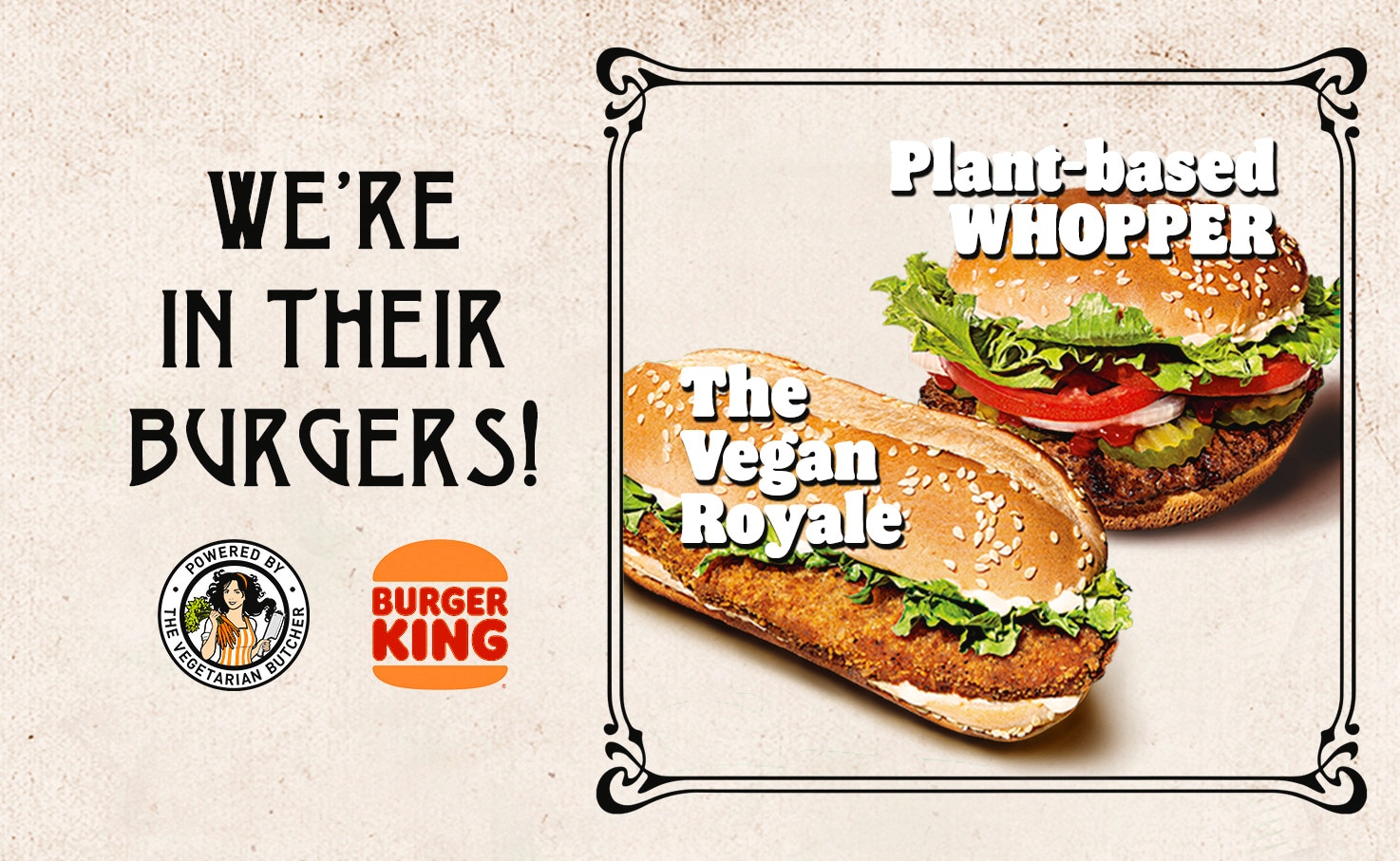
- Inspiring People -
- 6mins -
- 885 views
Burger King opens its first meat-free restaurant in Germany
The fast food giant opened its first completely meat-free restaurant in Cologne this week — for a limited time only.
Fast food giant Burger King opened its first completely meat-free restaurant in Germany
On Monday, Burger King is opened its first vegan-friendly meat-free restaurant in Cologne, Germany. The fast-food giant’s new plant-based venue is set to open its doors for just four days from 7 June – 11 June. The chain has again teamed up with vegetarian meat company The Vegetarian Butchers to create its meat-free menu. The plant-based menu will include vegan versions of signature Burger King options such as the Plant-Based Whopper, Plant-Based Nuggets, and even a new Plant-Based Whopper Wrap.
Burger King partnered with The Vegetarian Butcher
Meat alternative producers The Vegetarian Butchers have been working with Burger King in recent years to develop and expand the chain’s plant-based menu. The collaboration has meant Burger King venues across the world, in countries such as Mexico, China, Germany, and the UK are now able to offer plant-based alternatives to their customers.
The Burger King Germany website explains the new plant-based menu isn’t just for vegans. They encourage flexitarians and meat-eaters to try their new menu, promising “everyone gets their money’s worth with our exclusive plant-based”.
Although Burger King is going plant-based with its burgers, it is unknown whether BK intend to release dairy-free cheese and condiments in the near future.
Source: VeganFoodAndLiving
Burger King selling less beef!
Lately, Burger King has become dedicated to creating vegan-friendly alternatives and says it is on a mission to create a green future.
The latest move came from Burger King UK after it released its first vegan-certified Vegan Royale. In addition, BK has pledged to reduce waste by recycling 100% of its packaging in all stores by 2025, become energy efficient, and also reduce plastic use. The biggest pledge of course is Burger King plan to be 50% plant-based by 2031.
BK CEO Alasdair Murdoch explained: “Are there going to be less meat products? Ultimately, you would say yes. Over time the amount of beef that we are selling as a proportion of our total sales is reducing”.
VeganFoodAndLiving say it is encouraging to see beef-based producers acknowledging the shift in demand and understanding beef is not the future. We look forward to seeing more big-name brands adapt to a plant-based way of life.
Source: VeganFoodAndLiving
The vegetarian butcher is on a mission to free animals from the food chain
A statement from the Vegetarian Butcher (Dutch company acquired one year ago or so by Unilever) reads: "Our mission is to free the animal from the food chain, so of course we’re working towards Burger King restaurants that are fully plant-based for an unlimited time 🙏 In our opinion, opening a Plant-based Burger King restaurant will accelerate our mission. Because for now, we can meatmerize lots of meat lovers in Cologne and show them they don’t have to sacrifice a thing for the iconic Burger King experience. Besides: most of the Plant-based options will stay on the menu after June 11, hoping meat lovers will choose the plant-based menu when returning to Burger King!"
A plant-based diet benefits not only humans but the Earth, too
A diet heavy on whole grains and plants doesn’t only benefit human health, it also benefits the planet too, according to a report by a commission of dozens of experts from 16 countries.
The report, published in The Lancet, attempted to determine the optimal diet for both humans and the earth, and found that if people around the globe followed a plant-based diet, it would save over 10 million lives — preventing 20% of adult deaths per year.
With Americans consuming 26.5 billion pounds of beef in 2017, several reports have tried to apply these same variables to estimate the environmental impact of a quarter-pound hamburger. One report, using numbers from a study on the environmental impact of beef production, estimated that one burger required 14.6 gallons of water, 13.5 pounds of feed, and 64.5 square feet of land to produce.
Additionally, they led 0.13 pounds of methane and 4 pounds of carbon dioxide to be released into the environment. The Environmental Working Group estimated that the carbon footprint of broccoli is nearly 13 times less than beef, and a clinical trial showed that eating it may even help to rid your body of cancer-associated pollutants.
Source: ABC-News



